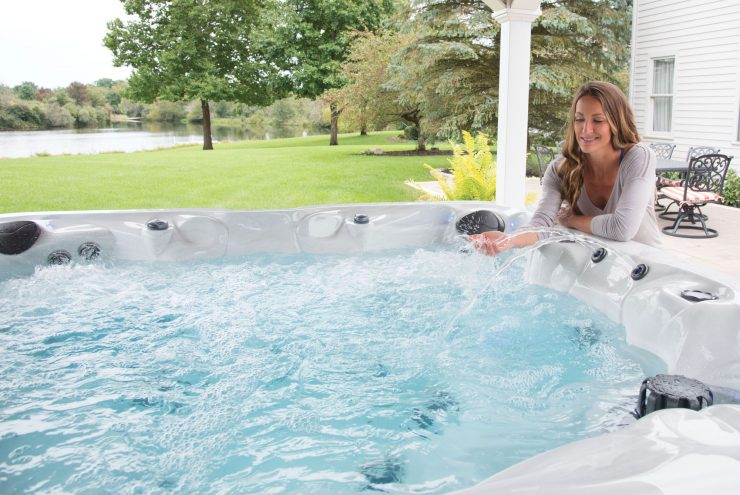More than 13 million households in the United States get their water from wells, according to the EPA. The water can be naturally pure, filtered underground, without the additives of treated water.
However, well water can also have higher levels of minerals and metals, such as copper and lead; microorganisms; and organic chemicals. The water, too, is often considered “hard,” which means that there are higher amounts of calcium and magnesium. Hard water can leave a residue, which is not dangerous but can be annoying.
For hot tub and swim spa customers, they might be curious about whether they can fill a hot tub with well water?
The answer: Of course.
Homeowners with well water can enjoy the health and relaxation benefits of a Master Spas hot tub. A pre-filter and specific spa chemicals, as well as Master Spas’ mineral filtration system, help achieve clear water that’s soothing.
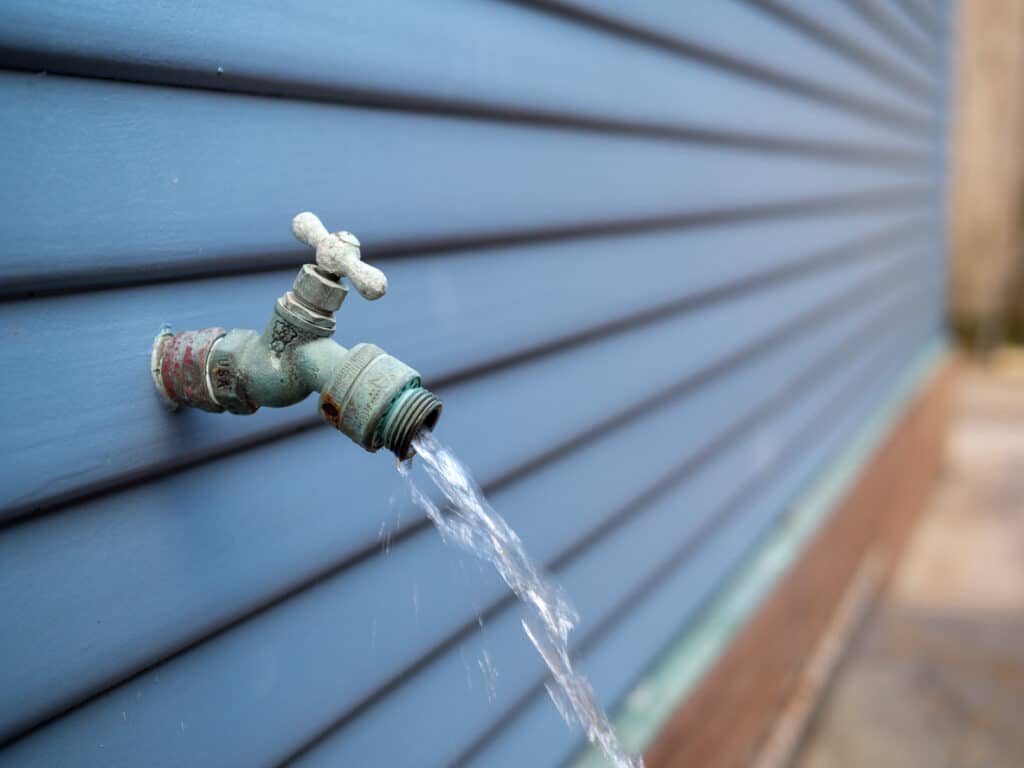
Well water vs city water
It’s a modern-day dilemma. You’re about to rush out the door when you realize your trendy 40-ounce tumbler is empty. So you head to the kitchen, where your fridge’s built-in ice maker and water purifier await. With a quick press of the dispenser, your tumbler fills, and you’re good to go for the day.
However, the properties of that water can vary depending on where you live and how you get your water.
Many homeowners rely on a public water system. Known as “city water,” the municipality treats the water to remove harmful bacteria and contaminants. It’s also regularly tested to ensure that it’s safe for drinking and bathing. The water typically has fewer minerals, as well as additives like chlorine and fluoride.
For those who live in rural areas or newer developments, they might not have access to city water and rely on well water. Drawn from underground sources, the quality of well water can vary depending on the soil composition and environment around it. In fact, well water can vary greatly depending on where you live, which directly affects how you’ll need to care for your hot tub.
In some areas, especially places with lots of limestone like the Midwest or Southwest, well water tends to be “hard.” This means it has higher levels of minerals like calcium and magnesium. In other regions, like the Pacific Northwest, well water might have fewer minerals but can be more acidic. If you live in an area with frequent rain, that can also contribute to the water’s acidity. And in farming regions, like the Great Plains, well water may have contaminants like nitrates from fertilizers.
How to fill a hot tub with well water
Your hot tub has arrived, and you are ready to fill it with water. You grab the garden hose, attach the filter, and get ready to turn on the spigot.
But you stop for a moment. Your outdoor water is connected to the well. You use a softener for drinking, cooking, and showering. However, you don’t have convenient outdoor access to the treated water.
“Do you continue to use your well water to fill the hot tub?” you ask yourself, still holding the hose.
The answer is yes. However, you might have to take some additional steps to fill your hot tub with well water.
Attach a pre-filter
Whether you have city water or well water, Master Spas recommends using a pre-filter. The prefilter is easily attached to your garden hose and helps to remove impurities and heavy metals from the water. Among the benefits of using a prefilter, which easily attaches to your garden hose, is that it can reduce the amount of chemicals you need at start-up.
Consider softened water
One of the challenges of filling a hot tub with well water can be the hardness, or calcium, levels. Hard well water is often why homeowners use a softener for drinking, cooking, and cleaning.
You might be tempted to use softened water to get your hot tub up and running more quickly. However, you should never use more than 50% softened water in your spa. The calcium levels might be too low and could affect the components.
Add a sequestering agent
The composition of water might come down to three atoms — two hydrogen and one oxygen. However, the water that comes out of the tap or city has much more than those elements. City water, as well as well water, can have a variety of minerals including sodium, potassium, calcium, magnesium, iron, copper, manganese, phosphorus, and zinc.
When you are filling your hot tub for the first time, it’s important to control the mineral content of the water. A sequestering agent can remove unwanted minerals and heavy metals from your water, making it easier to treat. Sold under many different names such as Mineral Clear or Metal Protect, be sure to follow the instructions listed on the bottle and allow water to circulate and filter for at least 30 minutes before adding any other chemicals.
Homeowners who have well water with particularly high copper or iron content might need to rinse their filters the day after adding the sequestering agent.
Be patient
Filling your hot tub with well water can take a bit more time and patience than using city water, especially when it comes to balancing the chemicals. Well water is often rich in minerals, which can cause fluctuations in pH and other chemical levels, especially at the initial startup. Don’t get frustrated if it seems like your pH or alkalinity is a bit stubborn—it’s completely normal for the water to buffer the products, meaning it may take a few days to get everything in range.
For example, you might find yourself needing to add more pH decreaser than you initially expected. This is because well water’s natural composition can resist changes in pH, so it may require a little extra attention. Testing the water regularly during this process is key, and you’ll likely see the levels start to stabilize after a couple of days.
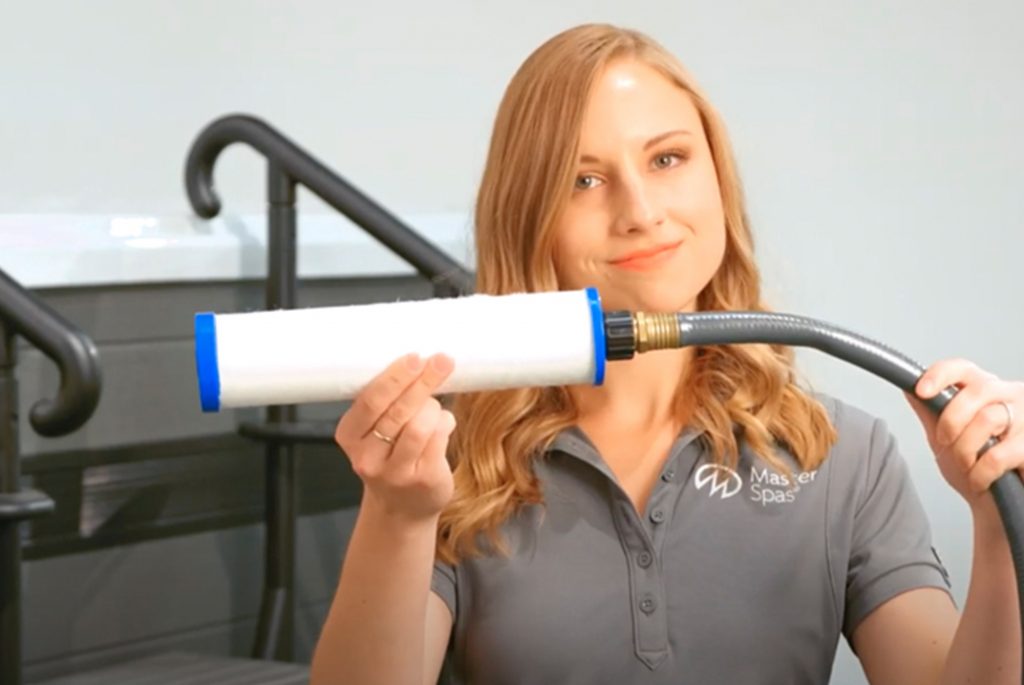
Maintaining hot tub with well water
Proper care and maintenance are key to keeping your hot tub’s water and components in great condition.
Regular water testing is a must, no matter the source, to ensure your hot tub remains clean, comfortable, and safe. You’ll want to monitor alkalinity and pH levels before adding chlorine and oxidizer (or a non-chlorine shock product). Once the chemicals are balanced at startup, the ongoing care doesn’t differ much between hot tubs using city water and those using well water. However, if you “top off” your spa with well water, it’s important to keep an eye on the hardness and pH levels.
To prevent buildup on the spa surface and components, using a scale defense product is a smart move. Be sure to read the labels and consult with your local Master Spas retailer to ensure you’re using the right products in the correct amounts. With harder water, like well water, these treatments can filter out minerals and metals, preventing them from causing discoloration or buildup on your hot tub shell.
Regularly rinsing and cleaning your filters also helps maintain water quality and keeps your hot tub running smoothly.
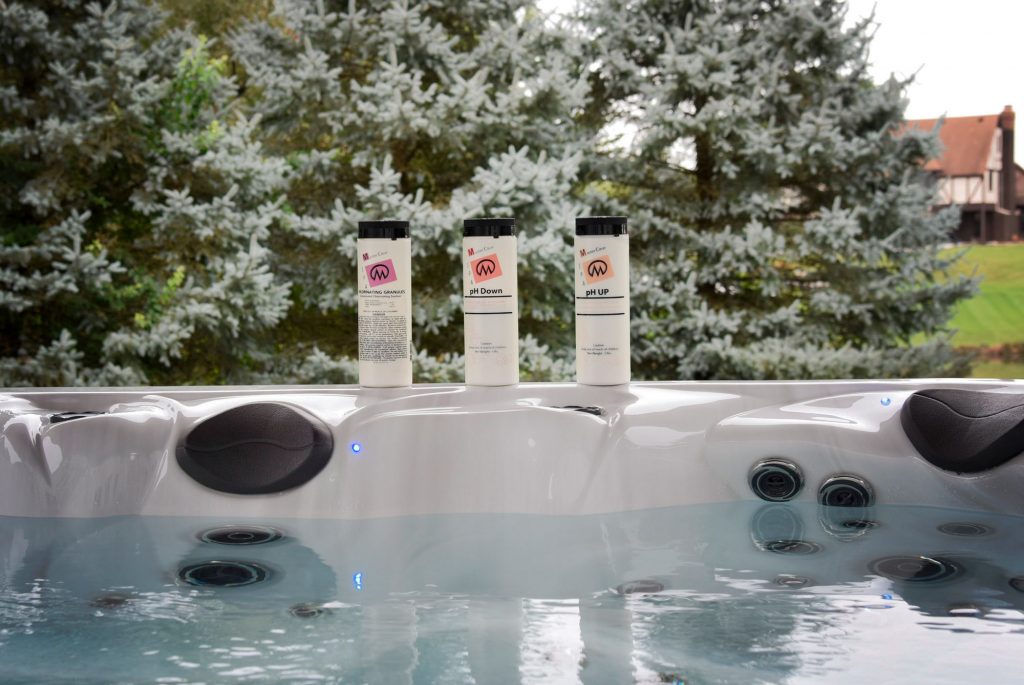
EcoPur mineral filtration system
The unique filtration system of Master Spas hot tubs incorporates a blend of minerals that purifies water, while requiring less chemicals.
The EcoPur Charge system is designed to remove contaminants from the water, while the minerals create an electro-chemical reaction. It’s that reaction that helps eliminate many microorganisms and remove heavy metals, like those found in well water. Hot tub owners enjoy sparkling water that feels softer and doesn’t have the harsh chemical smell associated with other systems.
Master Spas hot tubs also feature an advanced Ozone system that kills pathogens and microorganisms, while destroying organic materials. It also oxidizes non-organic contaminants to keep your water clean and refreshing every time you use your hot tub.
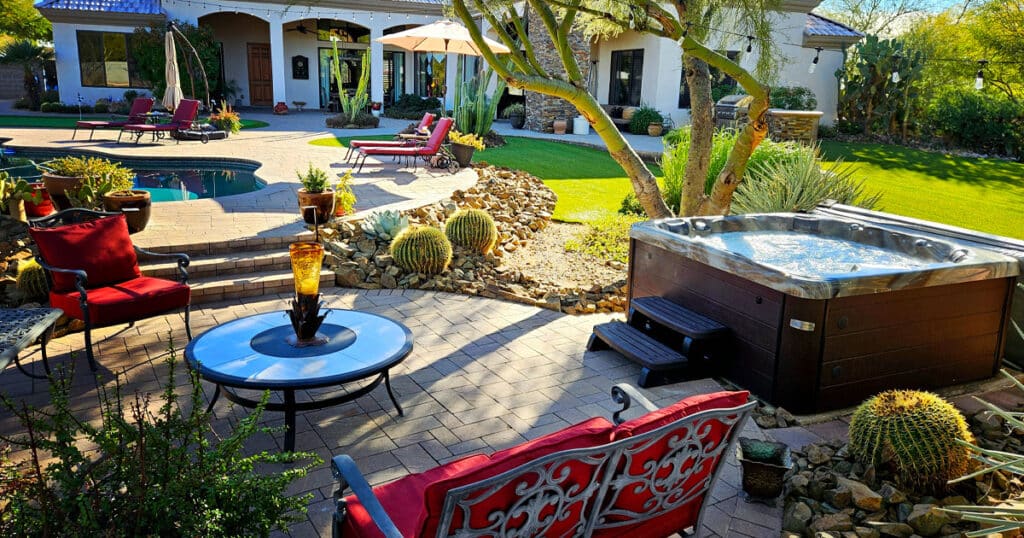
How to buy a hot tub
Are you ready to invest in your well-being and backyard? Master Spas hot tubs can be enjoyed this year and for many years to come. Click here to learn more about the benefits of hydrotherapy. Or, contact your local Master Spas retailer to learn more about hot tub ownership. Wondering how much a Master Spas hot tub costs? You can request a quote here.


